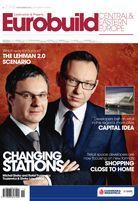CZECH REPUBLIC Investment activity in the Czech Republic was particularly intense in Q3, when the country had the largest investment volume of any CE country. So where is all this increased demand for Czech real estate coming from at the moment? Some of the investors are the local players who have dominated this area of activity over the last few years, such as Czech Property Investments (CPI). At the end of August, CPI announced the acquisition of a 50 pct stake in the EUR 160 mln Copa Centrum Národní mixed-use development in Prague (50,000 sqm), and a few weeks ago completed a CZK 5.4 bln (app. EUR 217 mln) transaction to buy 19 office buildings across the country with a combined area of 122,000 sqm from PPF Group. But what is noticeable about the current activity is the reversal of the trend in recent years for local investors to take the lion's share of transaction volumes. According to data provided by Colliers International, last year more than two-thirds of the total investmen




























































